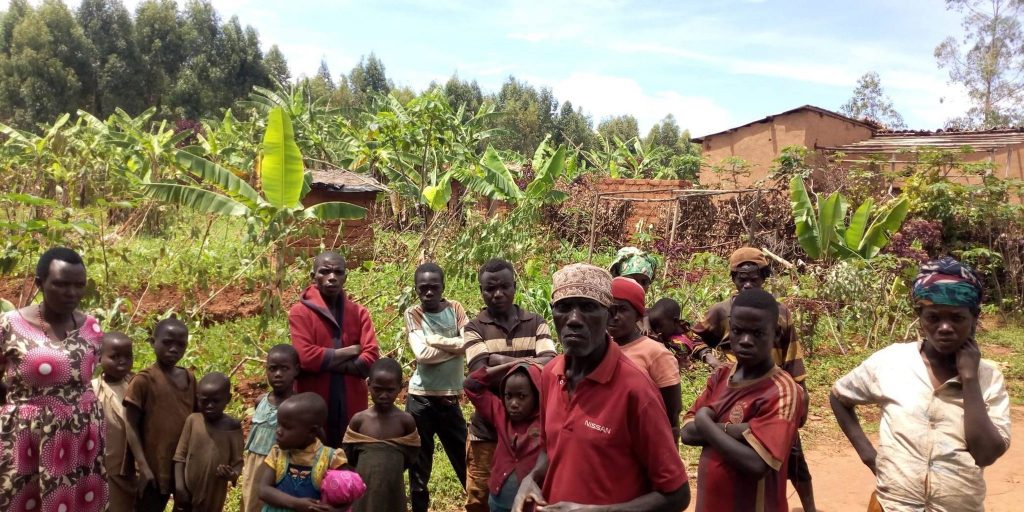The Batwa are a minority and indigenous group in Burundi. They represent about 5% of the national population and are distributed throughout the country with a greater concentration in the provinces of Cibitoke, Gitega, Kayanza, Ngozi and rural Bujumbura. They live in a state of extreme poverty and great discrimination.
Their way of life, often characterized by centuries-old nomadism, often caused by the lack of their own land and the weight of tradition and ignorance of basic rights, does not favor them access to identity cards or other administrative documents that other vulnerable and indigent groups receive free of charge.
The Batwa still have clichés and other stereotypes that are at the root of self-exclusion and discrimination by other social categories. The Batwa still consider themselves to be pariahs of Burundian society. Their habitat has hardly changed. Marriage practices, particularly marriages between members of the same family, do not respect either custom or biological rules.
Moreover, from the dawn of time to the present day, the vast majority of Batwa families have lived off the products of pottery from generation to generation. Today, they still begin to carry out daily work in return for payment in kind or in money.
The vast majority of Batwa have not yet understood the importance of schooling despite the measures taken by the Government of Burundi since 2005 to provide free education. A tiny minority of parents send their children to school but without conviction, vision, objectives, monitoring or supervision.
Given the social and economic situation in which they live, Iprosarude has set up several assistance plans. Iprosarude is really to the rescue of the Batwa community because it puts a particular emphasis on action training actions with Batwa community leaders in order to promote their social inclusion and to empower them in improving their health.

Iprosarude has already distributed health insurance cards to more than 58 Batwa families in the Mungwa Hill, in Gitega Province, who receive free health care in Iprosarude’s polyclinics. In addition, Iprosarude has also installed a water source so that the Batwa community of the Murangara sub-hill, Butamuheba hill in the Mungwa zone of the Gitega Commune can have access to drinking water.
Iprosarude has also already initiated the policy of their integration into the communities instead of making them a separate pariah group in order not to accentuate the exclusion that this category has suffered for years. This involves the creation of VSLAs in the Batwa community and/or integrating the Batwa into the existing VSLAs of non-Batwa. Those Credits and savings groups are appreciated by the Batwa themselves. This policy will certainly allow them access to basic social services on the same basis as other citizens, such as primary health care. However, in view of their socio-behavioural situation and their way of life, which is characterized in particular by this age-old nomadism, Iprosarude is currently developing other specific provisions that could help to consolidate the Batwa’s strategy of cohabitation with other citizens.
These include awareness sessions on inclusion and social cohesion, with particular emphasis on the perverse effects of stigmatization, self-exclusion, denial, the importance of belonging to a savings and credit group, etc. Iprosarude is convinced that these sensitisations could increase the level of confidence among vulnerable people, including the Batwa.
Eric’Allickan Niragira


Recent Comments